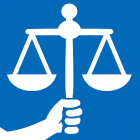How to Find the Best Car Accident Lawyer
Being hit by another driver scrambles everything: medical bills, police reports, insurance calls, and a thick fog of anxiety. Finding the right car accident lawyer near you can cut through that mess.
Start local, then widen your net. Search for personal injury lawyers in your city, then read client reviews and recent case results. A lawyer who handles many auto injury cases will recognize patterns insurers use and push back effectively. Proximity matters: local attorneys know the courts, the judges, and often the adjusters you will face.
Ask about experience and focus. Not all personal injury attorneys are the same. Some concentrate on motorcycle or truck accidents, others handle pedestrian or bicycle claims. During a quick call, ask how many car accident cases they’ve taken to trial, how they value soft tissue versus catastrophic injuries, and whether they’ve negotiated with your insurer before. Experience equals muscle in settlements.
Fee structure, plainly. Many accident lawyers work on contingency, meaning no upfront fee and payment only if you win. That’s often called “no win no fee” by some firms. Still, verify the percentage, what costs get deducted, and whether losing leaves you responsible for any expenses. Clarity up front prevents ugly surprises later.
Communication style matters. You want a lawyer who returns calls or texts, and explains options without legalese. During the first consultation they should outline realistic outcomes and a rough timeline. If they dodge specifics, keep looking.
Check credentials and reputation. Look for bar standing, any disciplinary records, and peer recognition. Local legal directories and state bar sites can confirm that quickly. Real world endorsements, former clients, medical providers, or plaintiff attorneys, tell you more than slick advertising.
Think beyond money. Some cases require long term medical care or vocational rehab. A strong car accident attorney will coordinate a medical team, speak with employers, and build a damages case that reflects future needs as well as past costs.
Choosing the right lawyer isn’t about a single metric: it’s about fit, skill, and trust.
Finally, trust your instincts. If a lawyer answers clearly, shows relevant wins, and treats you like a person, you’re already ahead. Start with a couple of free consultations, compare notes, and choose who makes you feel empowered. #CarAccidentLawyer #PersonalInjury #AccidentLawyer
